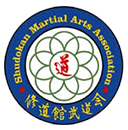The Gaining of Wisdom
By Muromoto, WayneThis article first appeared in the "SMAA Journal," Volume 16, Issue 1.
Do you think of martial arts masters as fonts of wisdom?
Have you ever encountered a master that didn’t seem to fit that mold?
In this article, Wayne Muromoto tells us about the truth behind the wise-master stereotype:
One of the notions that many people have is that martial arts masters are wise in the ways of the world. The appeal of the original Karate Kid movies, starring the late Pat Noriyuki Morita, or the Kung Fu series starring David Carradine, lay partly in the fact that the martial arts teachers could not only kick butt, but also dispensed wisdom as they kicked butt.
That’s a nice positive stereotype—but not always true, unfortunately. And it’s one we have to guard against as martial arts students looking for good instruction. Budo sensei are not necessarily good personal role models, those movies notwithstanding.
The basic concern of most martial arts training is becoming technically proficient in one’s art style. Of course, in budo, it is hoped that by adhering to this long and arduous regime of physical and mental self-discipline, one’s spirit also is polished and refined as a matter of course.
That happens, I have discovered, only if the martial artist lets it happen.
To be sure, I’ve encountered amazing teachers who have served as examples to me of what it means to be the best gentlemen (and women) in the world. No matter their professional careers outside the dojo, they were decent, law-abiding citizens who offered knowledge and served as examples to us younger students for what it meant to be a contributing adult to society.
As a youngster, my judo teachers were blue-collar workers—auto mechanics, sugar plantation workers, and the like. But they were family men, albeit rough around the edges, who served as examples of responsibility and public service. As I moved on to other martial arts, I always ended up with teachers who were not only superlative in their martial arts, but also successful adults in their personal and professional lives.
You would think, therefore, that the stereotype is true?
Not necessarily. For every mature, wise, and knowledgeable teacher, I’ve also encountered so-called teachers who were shysters, loudmouths, arrogant abusers, sycophants, and egotists. I’ve read of a local teacher put in jail for making side money trying to shake down people for a loan shark. Another teacher that had a string of martial arts schools with many young students had to serve time because he got caught dealing drugs.
And being Asian is no barrier to being a jerk. Ah yes, he may look like Master Po but may be just as devious as Bernie Madoff.
I looked upon my iai sensei in Kyoto with deep respect and affection. After I left Japan, we continued to write and correspond in between my visits back. He answered my questions about the history, theory, and techniques of iai, and encouraged me to dig further—to study the philosophy and spirituality behind budo. To him, a person’s nationality was no barrier to budo training, even though he had suffered through a Manchurian prisoner-of-war camp under the Russian Communists before he returned to Japan at the end of World War II. As long as you were serious about training, he would teach you.
However, when he passed away, I was told that I was no longer welcome to train at the main dojo. One of my Japanese sempai was oblique as to the reason why, and I didn’t find out until I encountered several other people in the same situation that I discovered the real answer. The sensei who took over the organization hated anyone who wasn’t a native Japanese, myself included.
That is why, if you find a good teacher—one who is not only technically proficient but also a decent human being—you stay with him or her. They are not the norm, just as excellence is not the norm in any endeavor. But in such a short lifetime, why not seek excellence? Anything less wouldn’t be worth it.
Looking to Join a Martial Arts Organization?
SMAA is a martial arts organization for all martial artists who want to be part of a community of dedicating to keeping the spirit of budo alive. If you love your art and want to share it with others, give us a call at (734) 720-0330 or submit a contact form to talk about joining!

